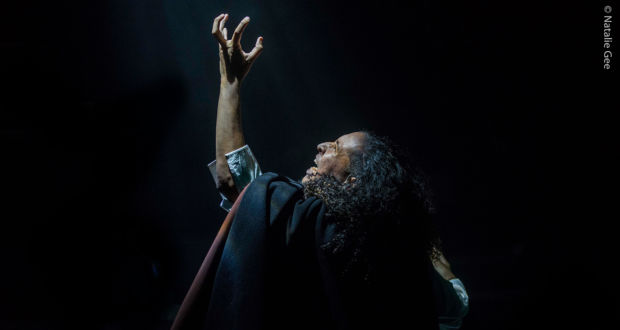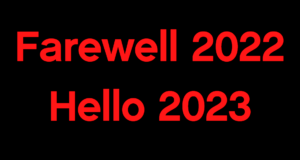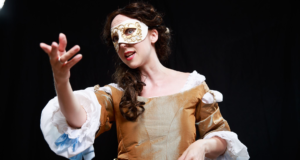Chickenshed Theatre Company is currently presenting Jekyll & Hyde, a new adaptation of Robert Louis Stevenson’s classic novella known for its internal conflict and what it means to be human. Those same themes were discussed as we sat down with director Jonny Morton to talk about the show, as Morton revealed how the text mirrors his own cast’s lives and shared more about the inspirational effect of Chickenshed’s work.
Jekyll and Hyde is a text known nationwide. It is in the academic syllabus, and there are many theatrical interpretations – ballets, musicals. Why did you decide to tackle this text in particular, and how do you intend to make it different from the rest?
We wanted to access books and plays that were on the school syllabus and make them relatable to the people studying them. My daughter was studying the book for her GCSEs. It’s an amazing novella; the difficulty with it, though, was how it becomes relevant to that age group studying it. How is it going to mean something to them? It got me thinking: What is one thing that all theatre teens are listening to right now? Hamilton! Lin-Manuel Miranda has engaged all these teenagers in learning about American history and independence. So then I thought about doing it as a musical – the whole thing, all the way through.
I then wanted to look at how the story was relevant to Chickenshed, as we have a whole moral code about how people treat each other here. In Dr. Jekyll and Mr. Hyde he wants to be Hyde, he wants to be apathetic, he wants to be abandoned – that’s my interpretation, anyways. It’s the addiction to the feeling of being bad – like in Breaking Bad, actually, [as] he still sells meth when he doesn’t need the money anymore. I then looked at the bigger picture – Jekyll must be so inherently unhappy with his life. This is relevant to Chickenshed, as many people here choose to come because of the way we are as an organisation, the idea of “being good” and working in a supportive environment. Society out there is really bad, so they make the choice to come here.
What age range is your cast?
Youngest [is] 16 and the oldest 28, [with] 16 ensemble members.
The themes in this text are paramount to the storyline: human vs. “the other”, natural vs. supernatural, good vs. bad. How are you aiming to get this across in your interpretation?
What’s great about this text is there isn’t a script – not a set one. I want to get across the duality battle Dr. Jekyll struggles with. Duality is a thing we all have within us. Is civilisation just a thin veneer, which, as soon as it’s touched, it cracks to what we really are?
We decided to do it in traverse so you are not waiting for a scene change and lights to go down. You can do a scene at one end and the lights come up at the other end. Like a tennis match, the audience can be drawn there [points to one side of the traverse] whilst a scene change goes on on the other side. There is no stopping and starting. It is a bit like a rollercoaster in that sense, because when the music starts, there’s no stopping!
The interesting thing about Chickenshed is that we are a company who talk about exclusion and how the power of theatre changes people’s lives. That’s what’s key to our interpretation.
You say you use music prominently in your performance. Who influenced your style, be it lyricists or playwrights?
The words have been written by Paul Morrall – he is a really good lyricist – and [the] score [is] by our musical director and producer Dave Carey. A good friend of mine Darren Norris helped with the “academia” side of it. The book gets a bit confusing going back and forward in time, with letters too.
We have our own style; I mean we all steal from each other, don’t we? Certainly watching Hamilton, what’s really clever about it – taking away the music and the lyrics – in terms of the directing [is] the flow and the consistency of it. DV8, the fantastic theatre company, is where a lot of our movement has been influenced.
So you mention DV8 as an influence – is there a lot of physical theatre in the show?
Loads – lots of movement. Our choreographer Michael Bossisse and assistant Bethany Hamlin work with the cast. The cast run with it, construct it, change it. I learn from them. It’s amazing how they change my vision. For example, there’s a bit where Jekyll changes and I wanted him on stage on his own. Michael and the cast thought, because the chorus are on stage, why not get them involved also? And it was brilliant, so much better than my idea. It becomes a sharing.
Describe your company and your creative process when casting them. What factors did you have to consider?
The benefit of knowing your cast, I know the areas I can develop with and from them. Being able to sing shouldn’t limit other cast members. One of our cast members is deaf and she communicates through sign language, which we can work into the show. It’s all about balance and that every area is covered, so when the audience is watching they can think – that could be me. When casting Jekyll I was looking for certain physicality, when casting Nathaniel [Leigertwood, who plays Jekyll/Hyde] it would be different, different for an audience. The dance movement that he’s really good at will also appeal to a younger audience.
There is our whole inclusive methodology we have developed at Chickenshed. People identify our shows with the way the company works together. They see with the actors that there is a genuine trust, which is an added layer to watching the show. You are seeing an experience of society work on stage. That, for me, is what inspires me to work here. That’s why Chickenshed is like my second home. It can really make a difference to people watching. If you make theatre elitist it’s not going to be relevant to everyone, therefore it won’t be engaging.
For those who have never heard of the show before, sum up what you are trying to get across to the audience in one sentence.
The everyday conflict that everyone has about the choices that they make.
What’s next? Do you intend to take this show further or tackle another academic text?
See how it goes, if there is a demand for it. What’s great about Chickenshed, we’ve got a bunch of shows in the pipeline. The Christmas show is coming up – this cast will move into that. Then we have a season called monologue, self-explanatory really. This show is a “try out” [where] we can do what we want. It allows us to celebrate the diversity of our cast.
You use the words “inclusion” and “diversity” a lot when you talk of this show and the whole ethos of Chickenshed. Do you think inclusion in theatre is there to “fill a quota”, or do you believe it to actually make a difference?
For me and for people working in it, we have seen a tangible effect inclusion has had on changing lives. It’s so powerful. It’s humanity in action, allowing yourself to be affected by it. I think the word inclusion – if it’s on the agenda for people, then it’s a really great thing. It will be talked about. Some people give up on it; people talk about being inclusive and more diverse but they never act on it, never asking HOW. It is fundamental to who we are. Theatre then becomes a powerful tool that influences people, changes people, engages, educates, motivates.
The interesting thing is we are showing the story of Dr. Jekyll and Mr. Hyde, yes, but also we are demonstrating what we do as a performing company. Seeing such a diverse cast on stage is different to the majority of theatre. Not only are people getting the message of Jekyll and Hyde, but they see how it works. If we can work totally inclusively, it has the power to bring society together. It is key to all of us: If we don’t know how to speak to each other and care for each other, then what is going to happen?
Jekyll & Hyde is currently playing at Chickenshed through 20 October.
 Everything Theatre Reviews, interviews and news for theatre lovers, London and beyond
Everything Theatre Reviews, interviews and news for theatre lovers, London and beyond



